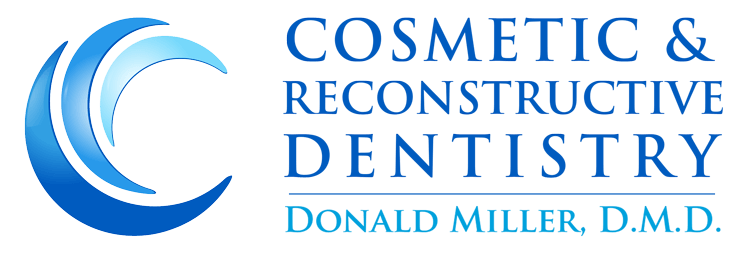Did you know that everyone has TMJ, but not everyone has TMJ disorder? TMJ stands for temporomandibular joints; these are the joints that connect your lower jaw to your skull. When these joints are functioning as they should, you probably don’t give them a second thought, but when they’re not working properly, it can be hard to think about anything else. TMJ pain can impact your overall quality of life, making it hard to eat, sleep, and go about your daily activities. Here’s what you need to know about TMJ disorder, its causes, and how Botox can bring relief.
What Is TMJ Disorder?
Patients with TMJ disorder (or TMD) have dysfunction in the temporomandibular joints and their surrounding muscles. You have one TMJ on each side of your head, and when you open and close your mouth, they operate as sliding hinges.
Although the TMJ are small joints when compared to others in your body, their location means they have the potential to produce a great deal of pain. The tissues surrounding the TMJ have a number of nerves running through them, which means even minor pressure on or around the joints can be extremely painful for TMD sufferers.
What Are the Symptoms of TMJ Disorder?
There are some classic signs of TMJ disorder that you’re likely familiar with, but there are also some that may come as a surprise. Because TMJ disorder can present with so many different symptoms, it’s commonly misdiagnosed by doctors. Many patients suffer with migraines for years before they find out the underlying cause is their jaw joints.
TMJ disorder symptoms include:
- Pain in the jaw and temporomandibular joints
- Migraines and headaches
- Earaches, tinnitus, and feelings of fullness in the ears
- Facial pain and tenderness
- Damage to the teeth
- Difficulty chewing
- Locking of the joints
- Hearing clicking and popping sounds when you open your mouth
- Swelling and tenderness on the sides of the face
- Muscle tension and pain in the neck and upper shoulders
- A feeling that your upper and lower jaw don’t fit together properly when you close your mouth
Because our sense of balance is located in the ear canals, TMJ disorder can also cause some people to experience dizziness, vertigo, and unsteadiness.
What Causes TMJ Disorders?
Teeth grinding, jaw clenching, chewing gum, fingernail biting, and chewing ice cubes are all examples of repetitive habits that can result in hyperactive and enlarged muscles around the TMJ. When these muscles are enlarged and inflamed, the symptoms listed above begin to manifest. Often, people think that TMJ disorder is caused by stress, but this is only partially true—stress causes repetitive habits and muscle tension, and this muscle tension causes TMJ pain. This is why you may notice your TMD is worse when you’re stressed.
While muscle tension caused by these oral habits is the most common cause of TMJ disorder, there are other physical factors that can increase your chances of having TMD. Arthritis, jaw injuries from facial trauma, joint erosion, and structural jaw issues can lead to TMJ disorder. Bad posture can also create muscle strain, which exacerbates TMJ symptoms; a poor diet and a lack of sleep also known to trigger and further aggravate TMJ pain.
Can Botox Help Treat TMJ?
The short answer is, yes, the use of Botox may relieve TMJ pain and discomfort. When Botulinum toxin is injected into the temporalis and masseter muscles, it limits muscle function and relieves pain associated with TMJ.
Then, once facial pain, headaches, swelling, and discomfort are under control with Botox, you can then more easily address other outside stressors that increase TMD symptoms. Remember, these symptoms affect more than your teeth and jaw. Assessing and diagnosing TMJ disorders will allow us to further improve your overall health and wellness.
Which Facial Areas are Treated with Botox for TMJ Relief?
Botox injections for TMJ are usually given in several facial muscles, including: jaw, forehead, temples.
Dr. Donald Miller will carefully examine your jaw, face, cheeks, and neck and discuss your symptoms with you. He will then determine where and how many injections are needed in each facial location during your visit. Most Botox injections for TMJ will last approximately 3-4 months.
How is TMJ Disorder Diagnosed?
During a consultation, Dr. Miller will discuss your symptoms and medical history. Next, your jaw will be examined by listening and feeling the temporomandibular joints when you open and close your mouth, evaluating your jaw's general range of motion, and applying pressure to various locations of the jaw and face to find areas that are tender.
To get a better look at your jawbone, temporomandibular joints, and teeth, Dr. Miller may also recommend x-rays if recent ones are not available. These x-rays can help aid diagnosing TMJ disorder while helping Dr. Miller determine the appropriate treatment plan.
Ready to Learn More About TMJ and Resolve Your Discomfort?
If you are ready to get your TMJ under control, please schedule a complimentary consultation with Dr. Donald Miller of Cosmetic & Reconstructive Dentistry in Fairfield, CT today. Please call 203-255-6878 or visit www.fairfieldcosmeticdentistry.com to schedule an appointment.

